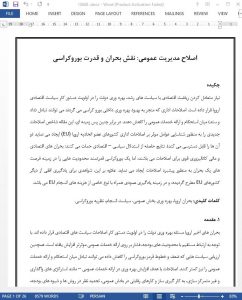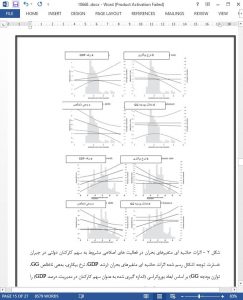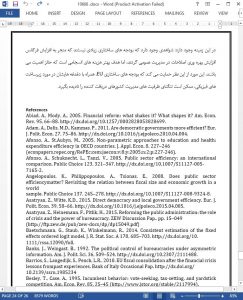Abstract
The need to balance austerity with growth policies has put government efficiency high on the economic policy agenda in Europe. Administrative reforms that boost the internal efficiency of bureaucracy can alleviate the trade-off between consolidation and public service provision. Against such a backdrop, this paper constructs (and makes available) a novel reform indicator to explore the determinants of public administration reforms for a panel of EU countries. The findings support political-economic reasoning: An economic and fiscal crisis is a potent catalyst for reforms, but a powerful bureaucracy constrains the opportunities of a crisis to promote reform. Furthermore, there is some suggestive evidence for horizontal learning from other EU countries, and for vertical learning associated with a particular type of EU cohesion spending.
1. Introduction
The recent European crisis has put the issue of government efficiency high on the agenda of economic policy reform. With strictly binding budget constraints, the pressure on more effective public service provision has grown. Policy measures that alleviate bureaucratic slack and red tape can also alleviate the trade-off between consolidation and public service provision. Reforms aiming at higher productivity in public service provision - such as strategies of devolution and decentralization, implementation of competitive mechanisms within the public sector, revised budget practices and procedures, performance-oriented approaches to budgeting and management, and reliance on e-government – can then be a substitute for cuts in spending or tax increases (Curristine et al., 2007).
7. Conclusion
This is the first study that explores the determinants of efficiency enhancing public administration reforms. The experience in the European crisis countries has pointed to an ineffective public sector as one of the crucial impediments to economic recovery. Accordingly, a better understanding of the constraints of administrative reforms is highly desirable. Our results indicate that, unlike in other reform contexts, it cannot be taken for granted that a crisis prepares the ground for overcoming institutional deficiencies. At least if the bureaucracy is large and powerful, the crisis-reform link is absent in the context of public administration reforms. The result for the role of EU cohesion spending is suggestive, although further research is required: There is some evidence that it is not large amounts of structural funds that appear to increase the frequency of efficiency enhancing reforms within the public administration, but a better targeted item of cohesion spending that matters. This supports the view that EU structural funds, with their preoccupation with physical infrastructure, may have neglected the bottleneck of deficient administrative capacities in the recipient countries.











